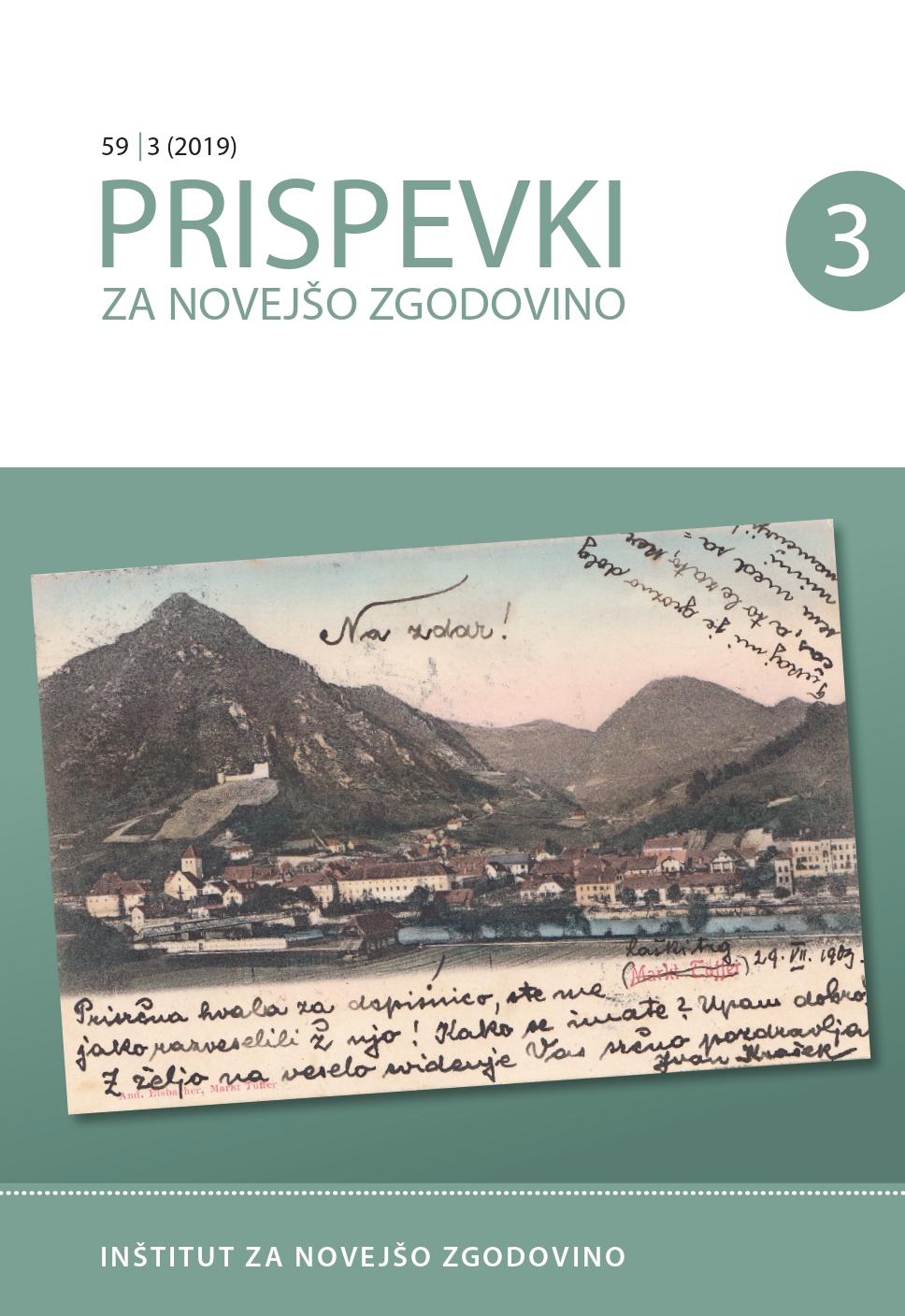Irredentist Actions of the Slovenian Organisation of Yugoslav Nationalists (the ORJUNA) in Italy and Austria (1922–1930)
Irredentist Actions of the Slovenian Organisation of Yugoslav Nationalists (the ORJUNA) in Italy and Austria (1922–1930)
Author(s): Vasilije DragosavljevićSubject(s): Political history, Government/Political systems, Nationalism Studies, Interwar Period (1920 - 1939), Peace and Conflict Studies
Published by: Inštitut za novejšo zgodovino
Keywords: expansionism; ORJUNAVIT Slovenia; Organisation of Yugoslav Nationalists; Trieste; Istria; Carinthia; Fantovska zveza; Marko Kranjec;
Summary/Abstract: This paper aims to examine and analyse the documentation available in the Slovenian Historical Archives and the Croatian State Archives as well as the strategic plans and projects described on the pages of the ORJUNA printed pamphlets and bulletins in order to determine the ideological tenets that formed the basis of the foreign policy as conceived by the Organisation of Yugoslav Nationalists (the ORJUNA). The focus of this paper will be on the irredentist actions taken by the Slovenian branch of the ORJUNA, carried out in the territories of Italy (Trieste, Gorizia, and Istria) and Austria (Carinthia). Special attention will be paid to the ORJUNAVIT (Organisation of Yugoslav Nationalists in Italy) and Fantovska zveza (Slovenian Boys Union) organisations, which were effectively the instruments of the ORJUNA, carrying out its activities in the territories of Italy and Austria. The expansionist ideas that were part of the ORJUNA ideological constructs and their implementation, as manifested through irredentist actions carried out in the territory of Yugoslavia’s neighbouring countries, were firmly rooted in the fundamental ideological foundations of this movement and the specific historical circumstances in which it emerged. The ORJUNA ideologists presented their expansionist agenda to create a Greater Yugoslavia, extending over a vast territory from Varna to Trieste and from Szeged to Thessaloniki, as the ultimate result of the struggle to create a unified and all-encompassing ethnic body of South Slavs. Guided by the imperative of preserving the ethnic identity of the Slovenian population in the provinces bordering on Italy and Austria, the ORJUNA leadership promoted the systematic use of organised violence as the basic tool in the struggle to achieve its goals. Due to the restrained and legitimately-oriented official foreign policy of the Yugoslav governments, as well as in light of the armed resistance of the Italian and Austrian official security forces and paramilitaries, the leadership of the ORJUNA failed to achieve its foreign-political goals through the use of terror. On the other hand, the expansionist ideas that were one of the essential tenets of the ORJUNA’s ideology remained a part of the ideological concepts embraced by all far-right movements for the Yugoslav integralism in the interwar period, which, with slight modifications, adopted the ideological constructs advocated by the ORJUNA.
Journal: Prispevki za novejšo zgodovino (before 1960: Prispevki za zgodovino delavskega gibanja)
- Issue Year: 59/2019
- Issue No: 3
- Page Range: 31-52
- Page Count: 22
- Language: English

